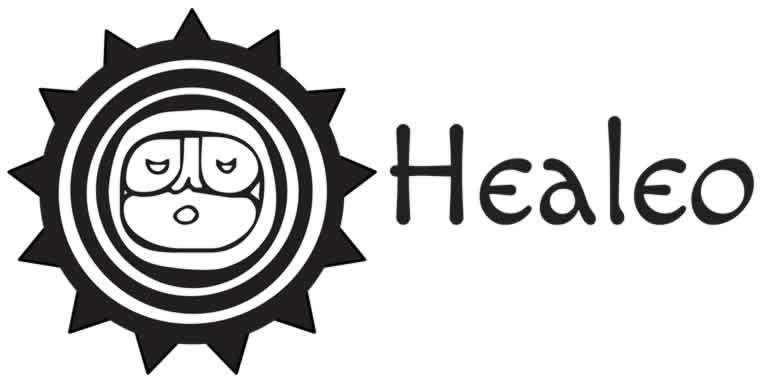Land Here
- 1. Welcome in
- 2. Civiliesation
- 3. Recent Roots of the Paleo Revival
- 3.1. Journey to Ixtlan
- 3.2. The Tracker
- 3.3. The Tender Carnivore
- 3.4. Nourishing Traditions
- 3.5. Light on the Yoga Sutra
- 3.6. Healing with Whole Foods
- 3.7. Born To Run
- 3.8. We Want to Live
- 4. Wiping Assumptions
- 5. Reclaiming Naturalness
Welcome in
Welcome in. Know that you are with friends who are getting out of the trap of civiliesation by healing using paleo, primitive, and ancient traditions.
Civiliesation
After being conquered and captured by the Empire, our ancestors were given a deceptive description of reality and trained to perceive through it and act inside it; following its rules. We too have learned these rules of how to perceive and behave. We use them without noticing them or recognizing the better options available.
The more religiously we do these things, the more socially successful we are, but the more unhappy. The more tightly we match this narrow and broken hallucination, the more we are cut off from our own feelings, from each other, from nature, from sanity, and from health.
The Empire is set up to maximize our suffering and collect that emotion, that radiant energy, like tax. Friction creates heat. The intelligence, creativity, and love in us that cannot be expressed become frustration, and that frustration is radiated and collected. Frustrated people moving in routine lives generate energy and do work for those controlling us.
There is no winning by being appropriate or doing what is expected. Being unnatural in order survive creates friction with nature in our own structure, and being misaligned with nature feels like being broken.
The program trains us to be mutual predators, to see each other as prey, or to submit to being one another's victims. Either way we play, we take our place in a pyramid of violence and harm. And either way we fail to receive the nurturance and support we would get if we were emotionally open and honest with each other, and cared for each other like ourselves.
We evolved to cooperate and be friends. That is how old communities worked: by building relationships of loyalty and helping each other. As long as we are conforming to fit into this new system and ignoring each others' feelings to be successful, we never get the friendships we need.
As long as we are being obedient instead of creative, the energy we are not using is being tapped. It is being stolen. We are generating energy for the monsters that run our slavery and feed on our suffering.
Being comparatively better off than those around us does not change the fact that we are suffering alone. Being tough and winning do not fix our basic problem.
No matter how hard we try or how much security we buy, the experiences we gather rarely release us from educated reality. We have to unlearn the language of lying to even talk about what is happening, help each other, or help ourselves.
We have to reconnect with the emotional parts of ourselves and their intelligence and expression to reclaim old ways of being. We have to do what we know how to do, and learn by doing, instead of thinking.
Instead of being a great march of human progress, civiliesation enslaves us. That is what it is set up to do. It takes ancient methods of hunting, herding, and farming perfected on animals, refines them using technology, and applies them to people.
It makes us as anxious, insecure, and incompetent as possible to control us. It makes us desperate, shifty, dishonest, and aggressive so that we take advantage of and attack each other. It trains us to be gangsters or whores. And it sits on top of the garbage mountain of misery and confusion and monetizes them, gaining increasing control of the miserable animals caught in its spell.
It is on purpose. It has been perfected for thousands of years. Our species has been studied and is deliberately debased and turned against itself. Those most enriched by this system are most brutalized and enslaved by it. Few have any idea how to escape or how the forces controlling them work.
Fortunately, there are tiny groups of people who were never captured or enslaved, and their lifestyles are adapted to keeping them free. We can do what they did, live as they live, and free ourselves. What we've lost is what we are looking for. By using the skills our ancestors used, we regain access to their perspectives and powers.
Recent Roots of the Paleo Revival
For the last fifty years or so, several books reopened access to primitive perspectives and skills:
Journey to Ixtlan
Journey to Ixtlan, by Carlos Castaneda, demonstrates how a lineage thousands of years old teaches modern people to regain our full powers of perception and action. A PhD anthropology student goes into the wilderness and has his assumptions wiped by an old native man far more sophisticated and competent than anyone he has ever met. The man notices things he cannot and interacts with forces he does not: the wider reality he as a civilized man has been taught to ignore. The book, and others in the series, provides actionable steps for regaining our full functionality. Many top innovators and visionaries alive today read and applied this book. The content is funny, simple, and easy to understand, and makes modern universities look like nursery schools.
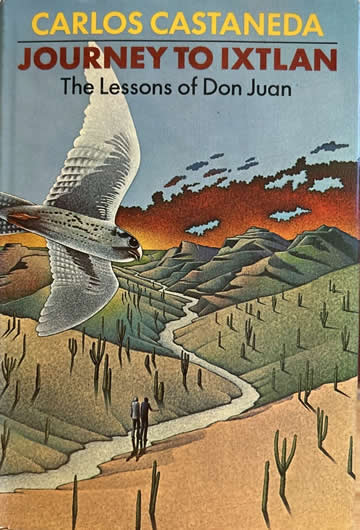
The Tracker
The Tracker, by Tom Brown, Jr., introduces the practical wisdom of an Apache Scout and fully functional primitive hunter, Stalking Wolf, who taught the author how to move through the world like a natural animal: using psychic and spiritual abilities domesticated people suppress. The book, and others in the series, ignited an explosion of interest in practical primitive skills. A later book, Tom Brown's Field Guide to Wilderness Survival sums up what he learned thematically, as an organized curriculum. By doing these things, we learn an old set of priorities that still apply to living well.
![]()
The Tender Carnivore
The Tender Carnivore and the Sacred Game, by Paul Shepard, summarizes what is known about how primitive people worldwide live and cooperate: functioning as an emotionally unified social organism. The book became the bible of modern environmentalism (before it was hijacked by corporate forces). Understanding the physical, social, and psychological world human beings evolved to function in and our bodies are optimized for enables us to set up workflows that engage us constructively and sustainably. Tougher to read, but lights good fires inside us.
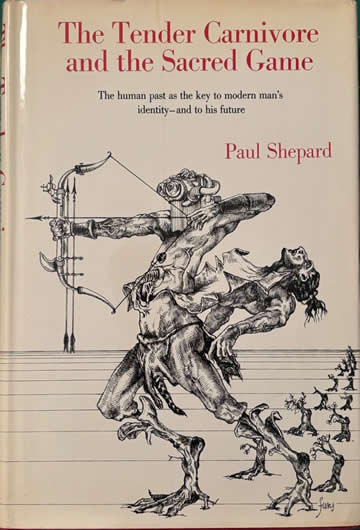
Nourishing Traditions
Nourishing Traditions, by Sally Fallon, Mary Enig, et al., summarizes the work of Weston Price, Francis Pottenger, and other nutrition-oriented doctors and contextualizes it with modern food science. Price was a Cleveland dentist who traveled the world in search of perfect teeth and perfect health. He visited most of the world's remaining relic indigenous populations in the 1930s and 1940s and studied them. His research is probably the most important physical anthropology ever conducted. Instead of finding the perfect vegetarian tribe, as he hoped, he found that all the people with perfect health ate heavily of animal foods and ate most or all of those foods raw. The book is also a cookbook that covers healthy traditional recipes from all over the world, including raw and fermented ones. It rounds out history and practicality with insights into how profit-seeking has perverted food and how scientutes and their "food science" have betrayed both science and health.
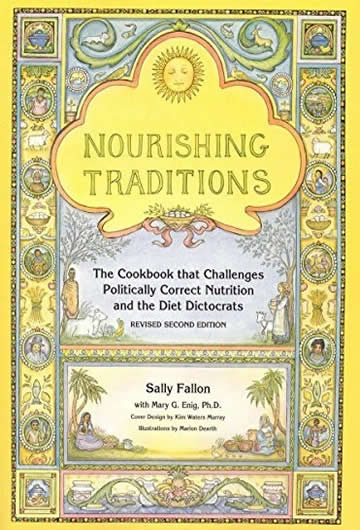
Light on the Yoga Sutra
Light on the Yoga Sutras of Patanjali, by B.K.S. Iyengar, clarifies the ancient Vedic manual for enlightenment for modern audiences. With the arrival of Yogananda in the West in 1920, interest in Yoga ignited. The possibility that one could shut up, stop thinking, and do something that steadily built a connection to divine intelligence was pursued by millions of Americans and Europeans. Iyengar was an Indian Yoga master, to whom thousands traveled to train. His book was not a manual on how to do Yoga, but why: to reformat consciousness. It was a mirror that held up regular civilized thinking, perceiving, and behaving as a disease that needed to be healed, and showed how to heal it.

Healing with Whole Foods
Healing with Whole Foods, by Paul Pitchford, makes Taoist food science accessible to Western audiences and cross references it with modern science (unfortunately, some of it is the fake science mentioned above). Food is one of the branches of Traditional Chinese Medicine, over 3000 years old. With this book in hand, hundreds of thousands of people realized that they could heal themselves of modern diseases by using diet deliberately, and did. Because of the author's beliefs about vegetarianism, that are not shared by the tradition as a whole, reading Fallon's book first is recommended.

Born To Run
Born to Run, by Christopher McDougall, documents recent encounters with the Tarahumara, a tribe in Mexico that evaded European conquest by running away. Its oldest members, in their 80s, routinely run fifty miles or more at a time and its champions can run three hundred miles or more, straight. The book makes obvious what primitive people were capable of doing and we still are, covering modern ultramarathons in rugged country and the people who run them, and the way of behaving with each other that primitive people still practice.
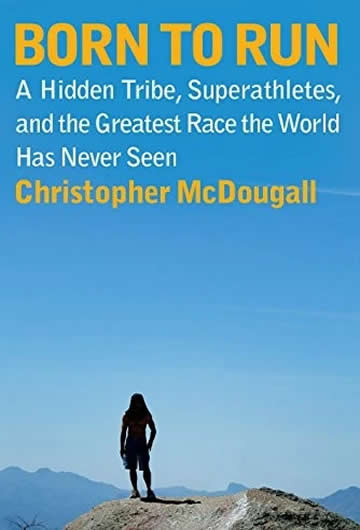
We Want to Live
We Want To Live, by Aajonus Vonderplanitz, launched the paleo carnivore revolution. The author was a starving vegan, dying of cancer, who went out to the desert to fast to death. A group of coyotes befriended him, took him hunting with them, laid a freshly killed rabbit in his lap, and urged him to eat it. He did, became well and strong, and began a ministry of healing with raw animal foods that touched thousands. His other book, The Recipe for Living Without Disease is worth reading as well.
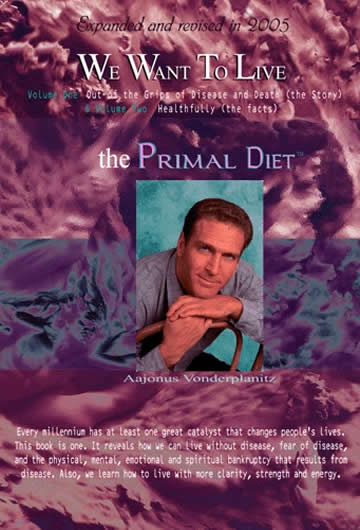
Wiping Assumptions
Civiliesation teaches us to be prejudiced: to judge things before we meet or understand them. One belief it installs is that our ancestors were "primitive": somehow less mature and competent than we are now.
In reality, it took a lot more maturity and competence to live in the natural world with simple technology than it does to live in a home built by others, eat food produced by others, and use technology built by others. Native people had to both know how things work and how to interact with Earth, weather, plants, and animals successfully, and that included personally building and using tools we needed.
Culture used to be sincere. It used to be a record of everything people knew how to do. Now it is a top-down program for teaching us how to be normal and how to conform. Getting out of that and back into our real inheritance is an incredible blessing.
Reclaiming Naturalness
Fortunately, small groups of people passed on and continued to develop practical information about how to function as natural creatures in an increasingly unnatural world. As the woman ranch was built around them, they carefully carried on the old ways.
The traditions are a science based on observation, not a religion based on beliefs. They are not a way to please priests or get God to smile. All of the universe, except us, is already smiling.
The traditions are a way to rejoin the family of life and take our place in the all-pervading intelligence and generosity. They are a way to stop feeling disconnected and shitty. To validate them, all we have to do is use them.
One godfather in this revival was Carlos Castaneda. He was willing to have civiliesation beaten out of him and patiently learn how to be natural again.
His eleven books and the books of his associates unlocked understandings of a Native American scientific tradition more vibrant and successful than the world's major recognized religions.
It is a metaphysical tradition, meaning it teaches us to perceive beyond the physically obvious and interact with what is there. By interacting with and honoring the full spectrum of reality we become complete beings; we claim our wholeness.
Just as pretending food has color but not flavor is lying, pretending that plants, animals, and other people have bodies but not feelings is lying. To leave civiliesation and its rules and become whole creatures again, we have to stop lying and align with reality.
The Toltec Native tradition was more successful than most religions because it embraces nature and everything alive and conscious and values them. Women are over half of the practitioners.
Other traditions are consciously or unconsciously devoted to keeping women serving men or keeping women doing most of civiliesation's unpaid work. Since women are highly creative, fluid, and practical, consistently ignoring their input produces religions that fail to innovate.
With women as equal partners, the Toltec tradition has produced dozens of people with christlike powers and lives, men and women, in every generation for thousands of years. There are hundreds of these people alive now and you could be one of them. Read about Castaneda and associates here.
